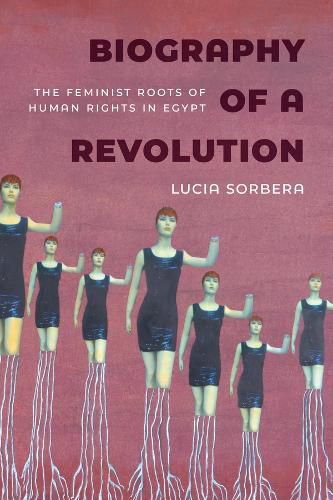Readings Newsletter
Become a Readings Member to make your shopping experience even easier.
Sign in or sign up for free!
You’re not far away from qualifying for FREE standard shipping within Australia
You’ve qualified for FREE standard shipping within Australia
The cart is loading…






It is not Egypt's 2011 revolution that opened a space for women's and feminist activism, but-as this book shows-the long history of women's activism that created the intellectual and political background for revolution. By centering the experiences and ideas of multiple generations of women activists and intellectuals, Lucia Sorbera traces the feminist genealogies of Egypt's nationalist, student, Marxist, labor, human rights, and democratic social movements. The book gathers a series of interrelated intimate and relational stories, charting in vivid detail the entanglements between women's aspirations across a century of politics and friendships. This historical analysis innovatively deploys decolonial and Indigenous feminist epistemologies, bringing women's, gender, and feminist history into the center of Egypt's political, social, and intellectual history. More than a decade after the 2013 military coup, women's intellectual and political activism remains crucial to keeping the embers of revolution aglow.
$9.00 standard shipping within Australia
FREE standard shipping within Australia for orders over $100.00
Express & International shipping calculated at checkout
It is not Egypt's 2011 revolution that opened a space for women's and feminist activism, but-as this book shows-the long history of women's activism that created the intellectual and political background for revolution. By centering the experiences and ideas of multiple generations of women activists and intellectuals, Lucia Sorbera traces the feminist genealogies of Egypt's nationalist, student, Marxist, labor, human rights, and democratic social movements. The book gathers a series of interrelated intimate and relational stories, charting in vivid detail the entanglements between women's aspirations across a century of politics and friendships. This historical analysis innovatively deploys decolonial and Indigenous feminist epistemologies, bringing women's, gender, and feminist history into the center of Egypt's political, social, and intellectual history. More than a decade after the 2013 military coup, women's intellectual and political activism remains crucial to keeping the embers of revolution aglow.